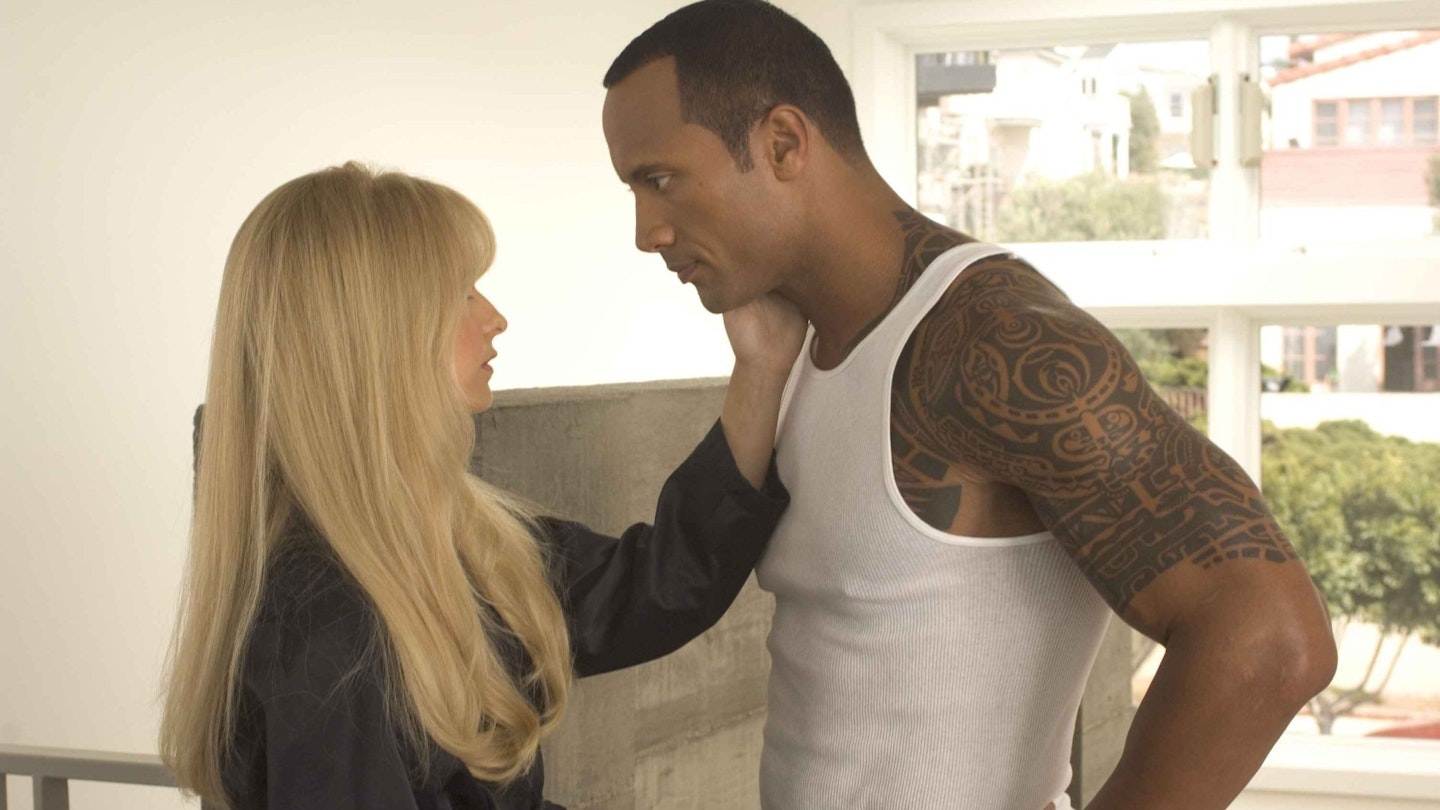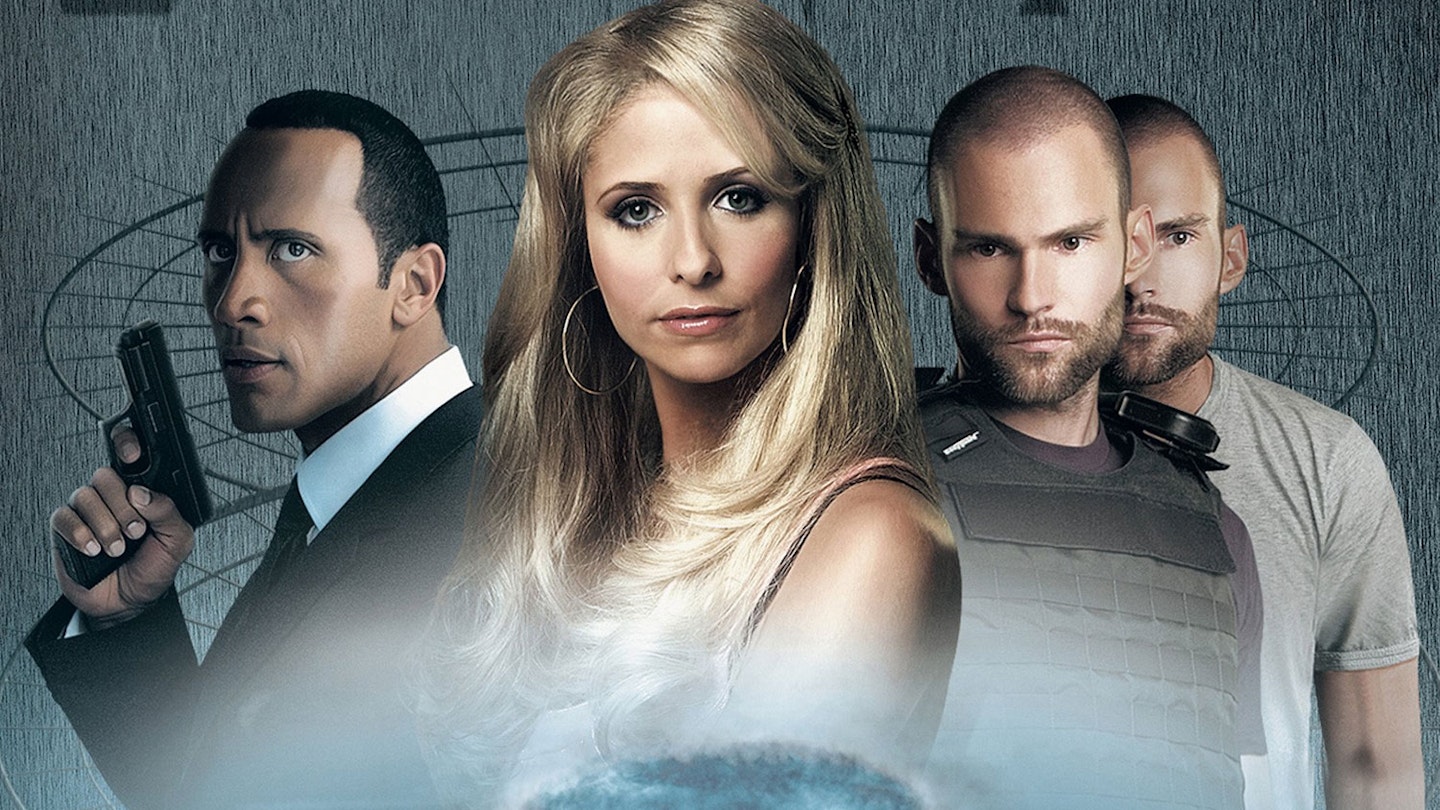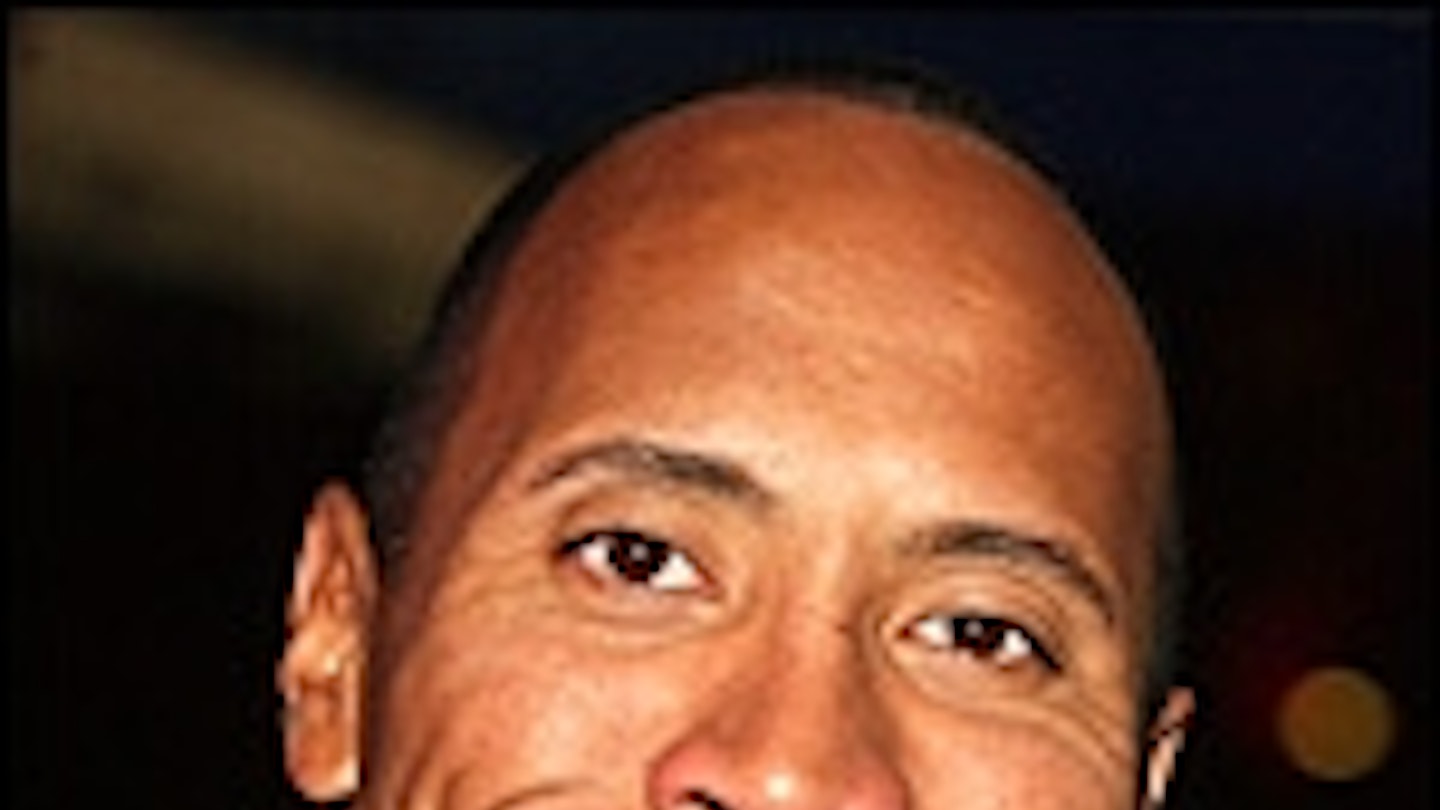When it premiered at the Cannes Film Festival in May 2006, Southland Tales was the film that had us Empire types bounding from our beds at some ungodly hour of the morning, despite the near lethal levels of booze coursing through our anxious veins. What the hell would we see? The follow-up to Donnie Darko, Richard Kelly’s debut, was shrouded in secrecy - it was a riddle, as Winston Churchill once said of Russian foreign policy, wrapped in a mystery inside an enigma. All we knew of Kelly’s film was that it was about the end of the world, a three-hour sci-fi oddity starring WWE’s Dwayne ‘The Rock’ Johnson with some bloke from Dude, Where’s My Car? and her from Buffy as a porn star. But after about an hour, it became clear that the thing that would be ending that day was not the world. It would be Richard Kelly’s - immediate - career.
It’s hard to explain to anyone who wasn’t there quite how crushing the whole experience was. Donnie Darko was one of those milestone movies that suggested a great new talent, a director who knew how to tantalise the imagination and leave the brain aching like an untrained, flabby muscle after a whirlwind workout. Donnie Darko worked on so many levels that it straddled arthouse and teen culture as few other films had before. It left questions unanswered and had a wonderful open-endedness to it that, together with Kelly’s visual flair and Michael Andrews’ underrated, buzzing score, even had Martin Scorsese paying his respects.
Southland Tales, however... Jesus Christ! The version we saw was simply abysmal. To call it anarchic would be kind and perhaps fair to the director’s vision. But to call it incoherent would be nearer the truth. This was a film that seemed to wilfully defy the most rudimentary expectations of entertainment.
It was scattershot, shrill, featured no promise of a conclusion or, at times, even a premise. Performances ranged from routine to dire, and events, mostly mystifying, weren’t exactly helped by a voiceover from a minor character that may as well have been beamed in from another movie entirely. Its moments of naturalism never worked, but its attempts at surrealism were even worse. His Donnie Darko star Jake Gyllenhaal once remarked that, after they’d seen David Lynch’s Mulholland Drive together, Kelly joked, “I guess we made the Bambi version.”
Well, with Southland Tales he’d made the Kenneth Branagh version. ‘Obvious’ hardly covered it. So this is the part of the review where you might expect the shotgun to come out. The trek to the screening room for a second viewing was not a happy one. But, amazingly, the last 18 months has done Kelly’s twisted labour of love an astonishing service. It’s not brilliant, so don’t get too excited, but, after some scissor work and a hell of a lot of extra post-production, Southland Tales emerges as something much sleeker and - this is the most surprising part - actually quite smart. What Kelly has done is refine his story, so where the Cannes version simply vomited its excesses right in your lap, this new cut paces itself, setting its storyline out from the new, and vastly improved, animated intro.
To be honest, Kelly has been helped out enormously by the ongoing situation in Iraq. With America still struggling to hold the tiger by its tail, Kelly can now play the satire card with much more confidence. In its new incarnation, its aspiration to become a sort of 21st-century Dr. Strangelove becomes much clearer, and the results are actually pretty funny. It’s no coincidence that the movie-critic admirers of the initial version - proper ones, and there were a few - mostly came from the west coast of America, and although a little knowledge of the Santa Monica area might be helpful for specific jokes, this is really a big, juicy black comedy about America’s reaction to Armageddon. Or rather the state of California’s reaction to Armageddon. In Kelly’s film, it’s pretty much business as usual, with the right-wing government trying to crack down on civil liberties, the liberal underground spreading its idealistic demagoguery, Hollywood trying to make a buck, and the porn community, represented by the blissfully stupid reality chat show host Krysta Now (Sarah Michelle Gellar), torn between such issues as war, poverty and, lest we overlook it, teen horniness.
The weak spot in all this is still The Rock, who struggles with a role that requires more of his fame than his talent. But at least we know now that this is Boxer’s story; in the first cut we saw the effects of a nuclear attack in Texas before diving into this impenetrable story. Now, it’s been pared down to one simple trajectory: where has Boxer been and what will become of him? Without giving too much away, though, that’s not very simple at all. How, for example, does it relate to the story of twin policemen Roland and Ronald Taverner (Seann William Scott)? If, that is, they... And if Boxer... No, that might be giving too much away.
But even though Kelly has given clear thought to tidying up his story, it’s still, like the onerous ‘director’s cut’ of Donnie Darko, both too much and too little, especially when the cast and story fly into the sky on the impressive Megazeppelin, taking our interest with them. It seems semi-serious, and big, and clever, and maybe further revelations will dawn on us later. But for now, the best part of Southland Tales is its Terry Southern-style madness, its wonderful depiction of America as it seems today, with insane rows about democracy, a terrorist who has to invade a big charity event solo because she can’t get “a plus one”, and a woman (Miranda Richardson) who becomes so obsessed with surveillance that she can’t leave her post ever - a scene vastly enhanced by digital screens that suggest she isn’t just filming her scenes in a shed in London, as it appeared in Cannes.
The political skew of all this may seem clumsy and perhaps a bit redundant, but what Richard Kelly has pulled out of the dreadful tombola of his initial cut is that sometimes the craziest films can better reflect the madness of the times. It may not be Strangelove, let alone M_A_S*H, but Southland Tales works best as a west coast Children Of Men, in which the cycle of violence may be perpetuated all around the globe, but somehow there’s a beautiful specificity to the apocalypse that will only ever happen in this strange and uniquely marvellous corner of the world.



